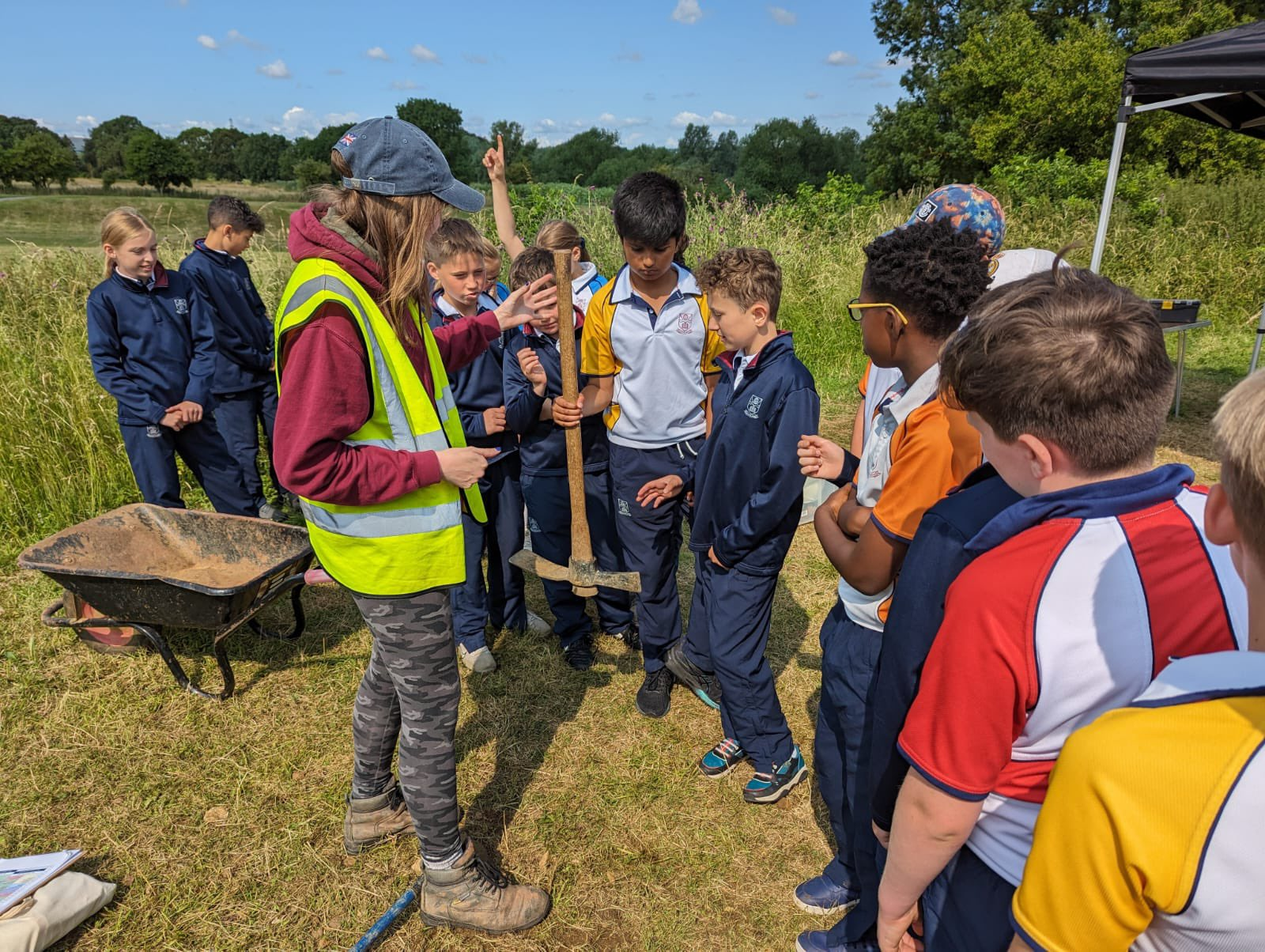
Irchester Field School
Learning Programme for Schools 2024
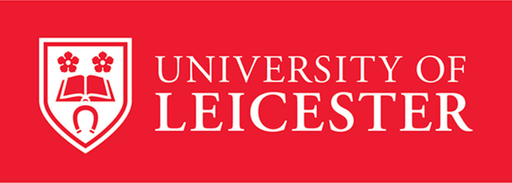


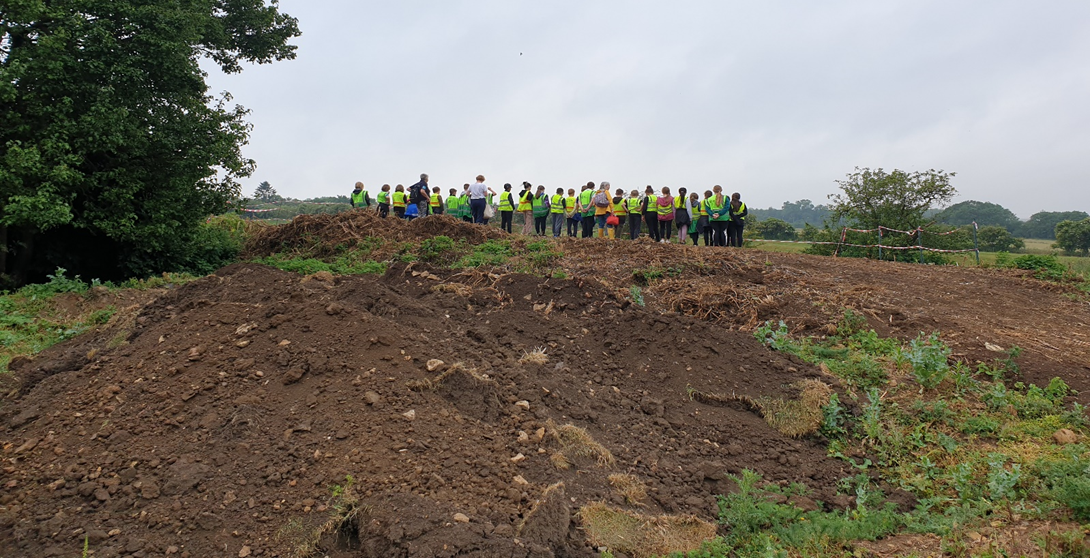
Irchester Field School
17th June - 12th July



What are we doing this year?
Key questions include
- How and why did the town develop?
- What happened to the town when Roman rule ended?
- What was it like to live in Roman Irchester?
Suburbs of the Roman town
- Cemetery
- Roman and post-Roman buildings
- Pits and ditches
Post-excavation
Analysis / cutting-edge scientific techniques
Archiving
Interpretation
Learning together
Irchester Field School
Learning Programme overview
- Sessions runs from 10:00 to 14:00
- Appropriate for KS2 -5
- 4 pathways per day
- Upto 32 per class
- Incorporates 4 practical sessions:
- Archaeological Explorers: Searching for clues in the landscape
- Archaeological Investigators: Cleaning finds for further analysis
- Archaeological Investigators: Discovery and recording
- Archaeological Investigators: Stories from objects
- Aligns to the National Curriculum
- Supports meeting the Gatsby benchmarks
- Details about the programme can be found in our teacher pack
Archaeological Explorers:
Searching for clues in the landscape
This will include a range of practical activities introducing students to the different stages of archaeological research:
- from landscape survey techniques
- mapping
- geophysical survey
Students will learn how and why archaeological investigations since the 1870s have transformed our understanding of the nature and significance of this site and the lives of its inhabitants.
How do we know where to look? What lies beneath the ground? How can we investigate without destroying the evidence? How and why did the landscape change during the Roman period and how do we know?
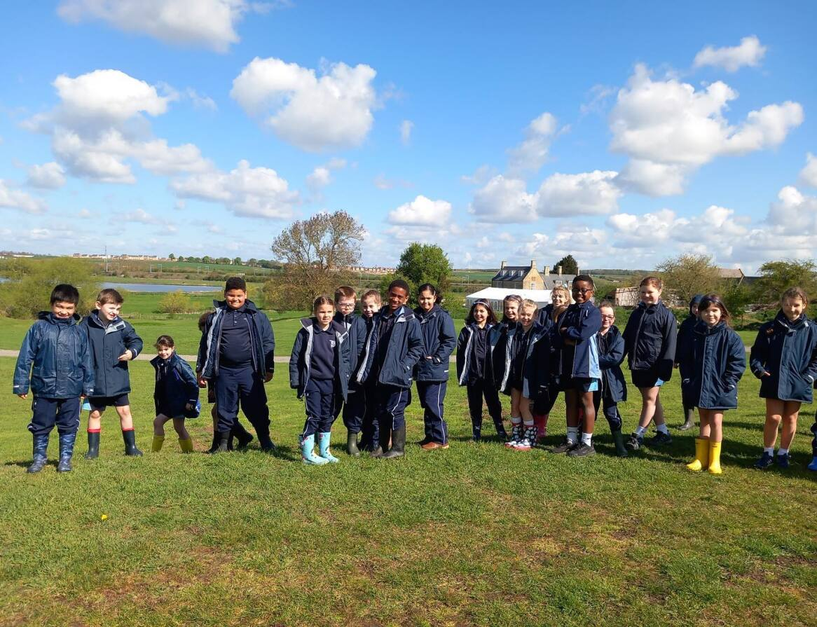
Archaeological Investigation:
Discovery and recording
This session takes place in the excavation area which aims to provide an understanding of Roman burial practices and find out how the excavation of cemeteries can provide important insights into aspects of everyday life.
Students will
- tour an excavation in progress
- talk to archaeologists
- handle finds and learn about archaeological excavation techniques
- be introduced to digital recording techniques, drawing and the processing of archaeological finds.
- handle a range of artefacts and ecofacts, including coins, pottery, seeds and animal bones
What techniques do we use? What kinds of things do we find? What records do we keep? What happens to the things that we find? How do we piece together how people lived in the past?
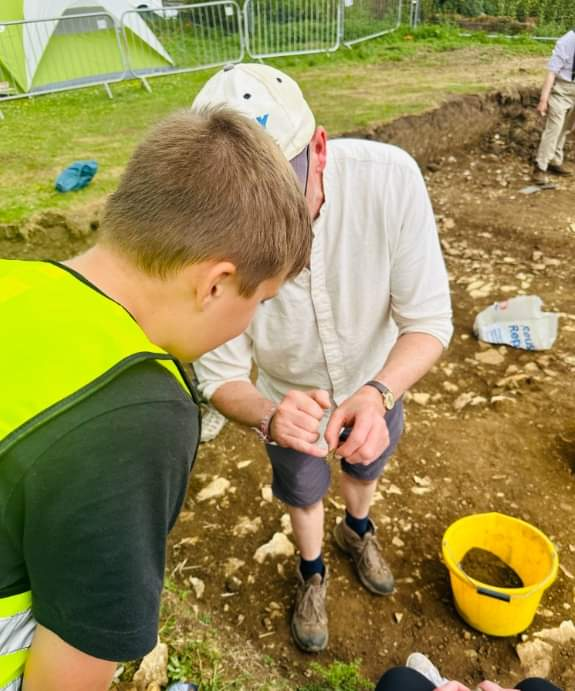
Archaeological Explorers:
Cleaning finds for further analysis
This session is designed to provide students with an understanding of the first stage of the post-excavation process where finds are carefully cleaned to enable archaeologists to complete in-depth analysis.
Students will:
- gain first-hand experience in cleaning finds guided by experienced archaeologists
- identify objects to gain an understanding of how archaeologists categorise and initially date finds before they are sent for analysis.
- consider the different properties of materials and identify which types of materials are most commonly found and why.
What are the most common types of material found here? Why? How and why do we clean finds? How can we clean a find without destroying evidence? What happens to objects once they have been cleaned?
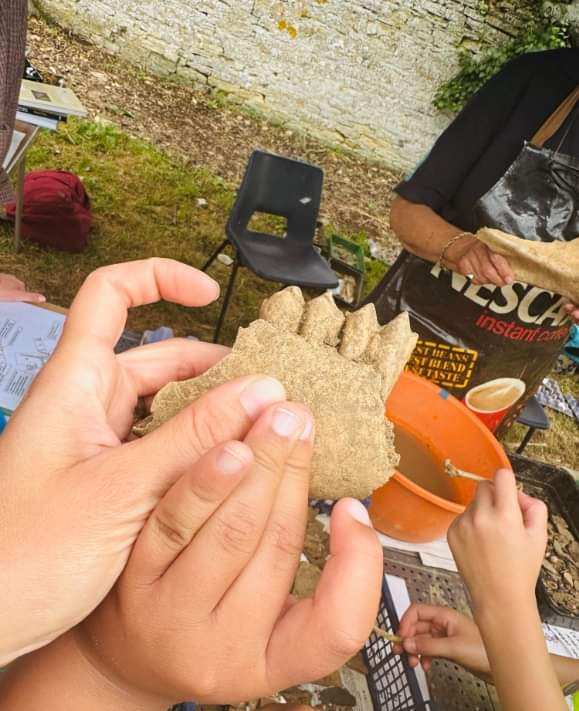
Archaeological Explorers:
Stories from objects
This session takes place in the ARC and is designed to familiarise students with the post-excavation work undertaken by archaeologists to discover about the past through examining finds.
Students will have the opportunity to:
- engage with cutting-edge techniques, including
- microscopic investigation
- photogrammetry
- find out how and why archaeologists investigate human skeletal remains
- gain an understanding of how archaeologists draw conclusions about the lives and identities of individuals who lived in and around the small Roman town of Irchester.
What has survived and why? Where, when, how and by whom were the objects found? What can they tell us about the people who made and/or used them? How do we know how old they are? What more can we learn about the lives of the people who made and used them through scientific investigation?
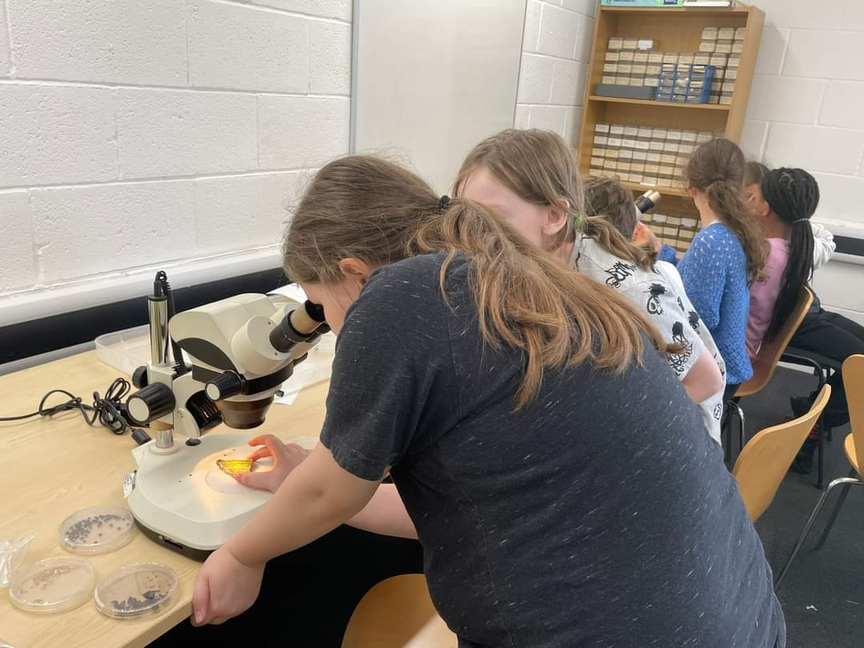
Curriculum links
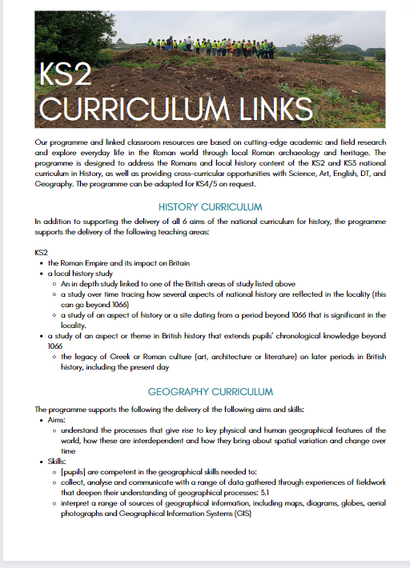
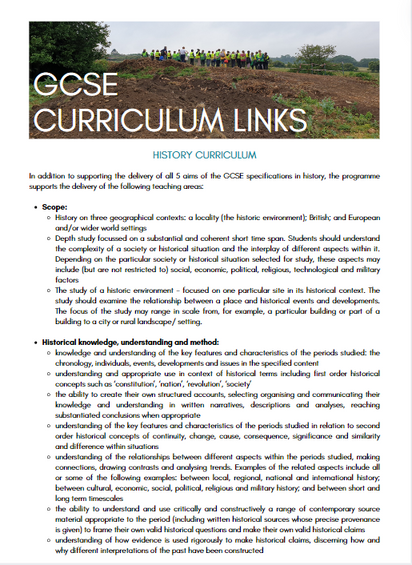
Timetable
Toilet Trip, Bag collection, departure | ||||
1
2
3
4
9:30
Arrival At Claudius way
9:15 - 9:30
Toilet Trip/Bag Drop/Welcome Briefing
10:00 - 10:30
10:30 - 11:00
11:00 - 11:30
11:30 - 12:00
12:00 - 12:30
12:30 - 13:00
Archaeological Investigators: Discovery and recording
Archaeological Investigators:
Cleaning finds for further analysis
Museum visit / Play area
Archaeological Investigators:
Searching for clues in the landscape
Lunch
Archaeological Investigators:
Stories from objects
Archaeological Investigators:
Searching for clues in the landscape
Archaeological Investigators:
Cleaning finds for further analysis
Lunch
Museum visit / Play area
Archaeological Investigators:
Cleaning finds for further analysis
Museum visit / Play area
Archaeological Investigators: Discovery and recording
Archaeological Investigators:
Stories from objects
Museum visit / Play area
Archaeological Investigators:
Searching for clues in the landscape
Archaeological Investigators:
Stories from objects
Archaeological Investigators: Discovery and recording
13:00 - 13:30
13:30 - 14:00
Archaeological Investigators:
Stories from objects
Archaeological Investigators: Discovery and recording
Lunch
Lunch
Archaeological Investigators:
Searching for clues in the landscape
Archaeological Investigators:
Cleaning finds for further analysis
14:00 - 14:30
Human Remains and Photography
Human Remains
The excavations are uncovering a Roman cemetery; students will have the opportunity to view human skeletal material which may entail a risk of offending religious and other sensitivities.
We recommend that this is discussed with parents, guardians and students in advance of the visit. Alternative activities can be provided on request.
Permission Slips
Included in your teacher pack will be an example letter and permission slip that can be used/incorporated if required.
Photography
During the excavation, there will be photographers on site who will be documenting the excavation and the learning programme. These photographs will be used in both print and digital media for documentary and promotional purposes. An example letter for parents will be included in the teacher pack.
Students without photograph permission should wear a hi-vis jacket throughout their visit.
Irchester Field School
SUpporting SEND Students
- To ensure all of your students are supported we can:
- Meet with you pre-visit to understand your learner’s needs
- Adapt our timetable
- Adapt or change activities with notice
- Wear a microphone provided by you
- Adapt our printed resources
- Adapt room set up for wheelchairs/mobility equipment
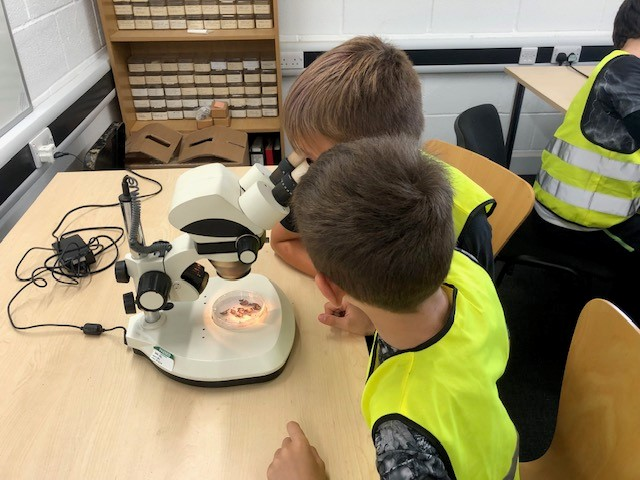
Making the most of your visit
Making the most of your visit:
Essential Pre-visit meeting
Tuesday 21st May
Time: 16:00 - 17:30
Location: Chester House Estate
- Tour of the site and locations - essential for writing your risk assessment
- On the day logistics
- Q&A with the lead archaeologist and learning team
Making the most of your visit: Pre Visit resources
Friday 24th May
- Resources will be available to download from a hidden page on our website
- Teachers will be sent a link to access these resources
- Access will remain live until the end of the Academic year.
- Examples of resources that will be included are:
- Photographs of objects and background information
- Archaeologist profiles
- Activity suggestions
- Photographs of excavation
Making the most of your visit: Loan boxes
- A box of primarily original objects (typically 15 objects)
- Borrowed for a minimum period of 1/2 a term
- Objects can be handled and used regularly by students rather than for display
- Objects can be used across multiple classes
- Resource pack with:
- Guidance on object handling
- Activities that can be incorporated into teaching
- Learning objectives provided to incorporate activities into wider planning
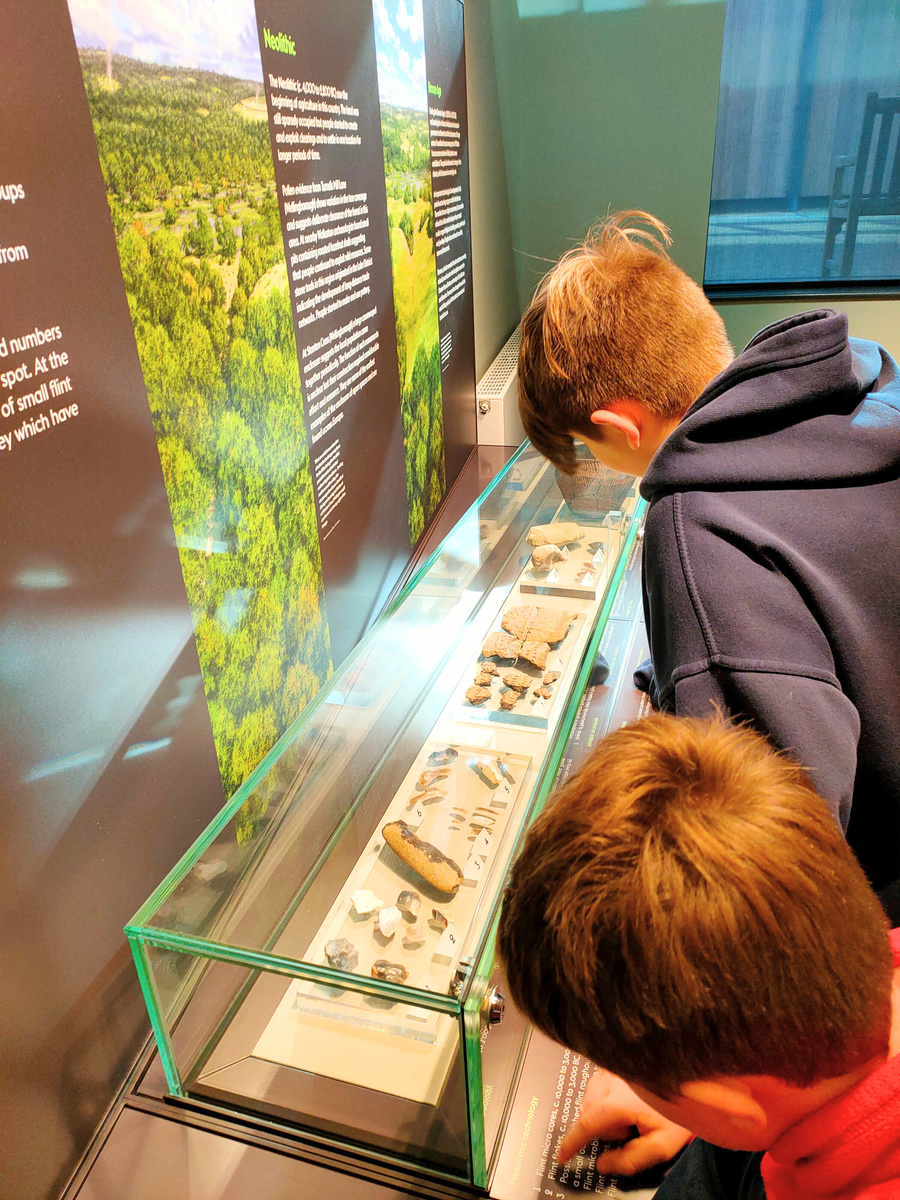
Making the most of your visit: Loan boxes
“The variety of artefacts was fantastic and the detailed notes that accompanied them meant the children could use them to research and enhance their learning in an independent, yet focussed way. I would definitely recommend using the loans the box as a way of bringing the past alive and giving it a context in the present”
Ms Kelly - East Hunsbury Primary School

Making the most of your visit: Free CPD
Date: 31st May Time: 9:30 - 12:30
Location: At the Chester House Estate
Topic: Life in the Roman World
- introduction to the site of this small Roman town.
- training in using primary source material
- supports the delivery of National Curriculum local history and Roman Britain
- introduction to other free training available on word roots, mythology and the ancient world
- exclusive for Irchester Field School bookings
- 1 free place per slot booked
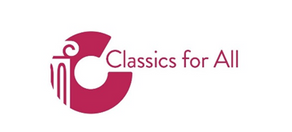
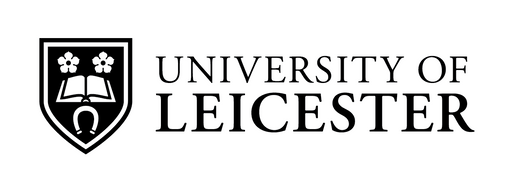


Get involved
Costs
Visit type
Price
£600 per class
Irchester Field School
including free CPD
Subsidised to £350 per state school class
Loan Box
£75 per box per 1/2 term
Costs - Affordable transport
- Schools can visit using any form of transport including walking, minibuses, coaches and parent drop-off (if agreed in advance)
- All arrivals at Claudius Way unless agreed in advance.
The booking process
New Project Timeline
15th Feb
Provisional bookings taken schools that attend launch event
Booking form
Due within 2 weeks of making a provisional booking
Confirmation
Your booking confirmation will be sent via email.
29th Feb, 5pm
All non confirmed slots are open to any school to book
Invoice raised
In the month preceeding your visit
24th May
Link to teacher resources emailed
21st May, 4pm
Essential pre-visit meeting at the Chester House Estate